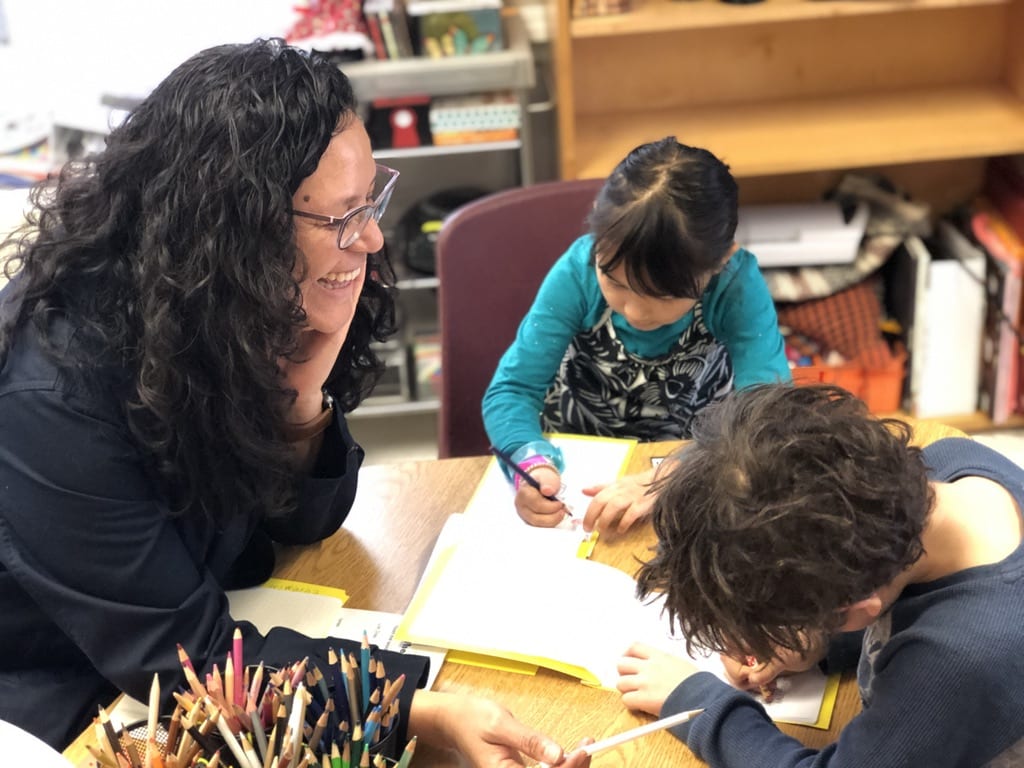“This is the version of the world I want to see out in the universe.” – Kindergarten Parent
5 Reasons Why We Love Progressive Education
#1
Students learn by doing and are encouraged to follow their own curiosity.
With carefully scaffolded instruction, expert teachers guide students to find the connection point between their own interests and various topic areas. With hands-on investigations, art, and design challenges, students are encouraged to build, create, and explain their thinking in a variety of ways.
Student outcome: Develop a lifelong love of learning.
#2
Focus on mastering academic challenges, and developing intrinsic motivation.
With small class sizes that enable close student-teacher relationships, instruction is differentiated so each child is in their “stretch zone” as much as possible. Teachers support innate curiosity by building connections between student and subject, and nurturing peer to peer collaborations. Regular assessments and a standards based grading approach provide valuable insight to help students learn, grow, and take on up-leveled challenges.
Student outcome: Students find satisfaction through their own efforts and achievement rather than from outside rewards.
#3
Prepares students for participation in a democratic society.
Learning emphasizes the complexities that come from a world full of different perspectives. Social justice informs the heart of Park Day School and the school continually works to be a leader in developing students’ social awareness and engagement. A key priority is that students develop a sense of agency to make a difference in the world and feel a duty to try.
Student outcome: Graduates are equipped with an understanding of who they are within the context of a wider world and see themselves as people with power to make change.
#4
Emphasis on collaboration and perspective taking.
We may not be able to imagine half the jobs our children will have in 20 years, but we do know they will be in peer environments, working alongside others. Group work and partner projects are a key part of Park Day’s progressive curriculum. Teachers invite and provoke multiple perspectives and multiple approaches to problem-solving as an equity practice in the classroom.
Student outcome: Learn to build off the ideas of experts and peers while identifying and respecting different perspectives.
#5
Focus on the whole child.
Children have social and emotional, as well as academic— needs, strengths, and challenges. With an eye towards preparing students for leadership in high school and beyond– Park Day helps nurture relationships, critical thinking, and compassion. Learning occurs in a caring, safe, and empowering setting.
Student outcome: Students become confident in themselves, their abilities, and find a sense of belonging they carry with them upon graduation.




